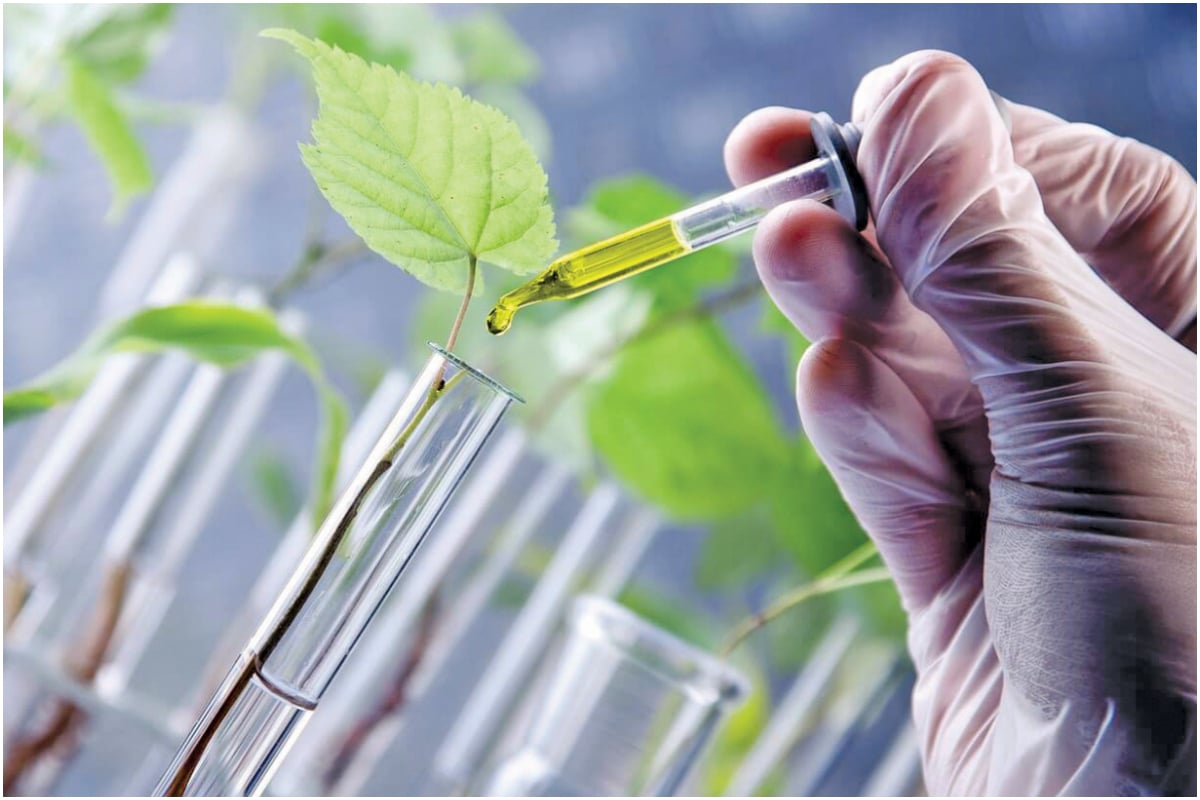
Is govt ignorant, or ill-informed?
Policymakers indecisive over commercial use of biotech seeds
LAHORE: The policymakers and regulators are confused over imposing a ban or allowing commercial use of biotech seeds, which caused inordinate delay in releasing soyabean and canola shipments, imported to make the poultry meal.
Nine vessels carrying 0.48 million tonnes of soyabean and 0.12 million tonnes of canola were cleared a few days ago on the intervention of the Federal Tax Ombudsman (FTO).
However, the importers will have to pay demurrage charges, as the vessels remained stuck at the Port Qasim for around 50 days.
As per the National Biosafety Rules, 2005, the importers are required to obtain a licence from the Environmental Protection Agency of the Ministry of Climate Change before placing an order for the import of genetically-modified organism (GMO) seeds.
The Department of Plant Protection (DPP), an attached department of the Ministry of National Food Security and Research, is empowered to issue the release certificates provided the importer has a valid licence.
In this case, the Customs sent a letter to the ministry, indicating that the imported seeds were GMO and, as such, needed to be cleared after due certification.
It is the first such incident, although Pakistan has been importing GMO soyabean and canola for more than two decades to fulfil the domestic needs of the poultry sector. Prior to this incident, the Department of Plant Protection has been releasing similar shipments without the certificate.
The stakeholders believe that the unfortunate incident happened due to the lack of coordination among the ministries and the government departments and delays on the part of the policymakers in taking final decision on the fate of GMO crops.
The All Pakistan Solvent Extractors Association (APSEA) believes that the real reasons to refuse to clear oilseed cargoes are not GMOs, as it has been a well-known fact to all the relevant quarters for many years.
According to the association, the decision has been taken with mala fide intentions.
The association also believes that there is no substitute to soyabean-based feed for poultry, as it is rich in healthy amino acids that help the livestock gain weight. Soyabeans contribute 25 per cent to the poultry feed by volume.
The people supporting the use of technology in the agriculture sector said that misconception among the policymakers, regulators and the public, at large, regarding the safety of GMO seeds has led to this incident, which caused losses to the importers in the shape of paying demurrage, besides putting the poultry industry on the verge of closure.
Local farmers have been cultivating BT cotton since 2004. Since 2010, Pakistan has approved more than 25 genetically modified cotton varieties for commercial cultivation. The local GMO cotton seeds are a key source of livestock meals commonly known as khal or binola. As such, Pakistanis have been indirectly consuming GMO-based products for more than 18 years.
Cottonseeds contribute nearly 9 per cent to the total domestic edible oil consumption and are used as an ingredient for production of both Vanaspati and soft cooking oils.
As such both humans and livestock are consuming GMO-based products for years without any safety issue.
More than 150 countries, including China, the US and Canada allow GMO-based products for food, feed and processing. However, 64 countries require labelling of food and feed products with GMO ingredients.
The real issue is that the DPP fumigate imported GMO seeds with methyl bromide to ensure devitalisation so that these could not be used for local cultivation.
Methyl bromide is a toxic chemical that was banned under the Montreal Protocol. It is a carcinogen regulated under OSHA, which also causes respiratory, kidney and neurological damage, while prolonged exposure can be fatal.
Muhammad Asim, CropLife Biotechnology Committee lead, said that there is extensive evaluation of GMO crops at the country of origin.
“As such, there is no question of any health or environmental hazards. The fumigation of GMO seeds with methyl bromide can pose serious health and environmental hazards,” he added.
The way forward is following the example of developed countries, which had already adopted biotechnology to ensure food security and improve the lives of the rural communities, he remarked.
“The US released the first biotech crop in the early 1990s. India and China started a biotechnology development programme at the same time and commercialised their first genetically modified crop (BT cotton) in 2001. It is a consensus among the scientists and world leaders that the 21st Century belongs to biotechnology and life sciences. Hence, it needs actual attention and focus with dedication and commitment for the development of the agro-based industries and food security. A comprehensive strategy with proper implementations is required to uplift the economy of Pakistan,” Asim said.
“On the one hand, we are spending hard-earned money on research of agri-biotechnology but, at the same time, not banning or allowing commercial use of biotech seeds due to confusion among the policymakers and the regulators”, he said.
As per a report, the genetically modified technology adoption had reduced chemical pesticides use by 37 per cent, enhanced the crop yields by 22 per cent and increased the farmer profits by 68 per cent. This reduction in the pesticides use has been ecologically beneficial.
There is a consensus among the scientists that the food derived from the genetically modified crops poses no greater risk to human health than conventional food but each item needs to be tested on a case-to-case basis before introduction for commercial use.
Asim suggested giving farmers access to innovative technologies to ensure food security in the days to come.
“The farmers should not be deprived of the latest advancement in the agriculture sector such as disease, pests and climate resistant GMO seeds for various crops. Supporting biotechnology would help reduce the input cost by minimising the use of pesticides,” he said.
“The use of such seeds would also save the farming community from exposure to hazardous pesticides,” he added.
Asim lamented that the government is not clear on whether to allow the commercial use of the GMO seeds or not.
“The government is doing research and processing requests to register GMO crops. The approvals of CropLife member companies to allow the marketing of genetically modified maize are pending for years, even after completing all the requirements, including field trials.”
“The government functionaries have informed verbally that this technology would not be allowed in food crops due to possible environmental and health risks. The case is still pending, as the genetically modified crops could be allowed for commercial use as per the existing regulations,” he said.
There is a need to initiate meaningful debate instead of keeping the cases pending for no apparent reasons against the laws of Pakistan.
Aamer Hayat Bhandara, a progressive farmer from Pakpattan and co-founder of Agriculture Republic and Digital Dera, suggested the people at the helm of affairs to take a final decision on whether to use or completely ban agri-biotechnology.
“We have been importing soyabeans and canola for years. The GMO-based products were already in our food chain. Not only soyabean and canola, we are also importing hundreds of GMO-based food products such as soy sauce, sweet and popcorn, fries and salmon. The entire edifice of Pakistan’s food and feed value chain, both locally produced and imported, is operating in a legal vacuum,” he added.
“Confusion and the lack of coordination among the ministries and attached departments has led to this unfortunate incident. We should take a final decision at the policy level to avoid such happenings,” Bhandara remarked.
Comments
Muhammad Asim
CropLife Biotechnology Committee lead
The farmers should not be deprived of the latest advancements in the agriculture sector such as disease, pests and climate resistant GMO seeds for various crops. Supporting biotechnology would help reduce the input cost by minimising the use of pesticides.
Aamer Hayat Bhandara
Co-founder of Agriculture Republic and Digital Dera
We have been importing soyabeans and canola for years. The GMO-based products were already in our food chain. Not only soyabean and canola, we are also importing hundreds of GMO-based food products such as soy sauce, popcorn, fries and salmon
Catch all the Economic Pulse News, Breaking News Event and Latest News Updates on The BOL News
Download The BOL News App to get the Daily News Update & Live News.








 Read the complete story text.
Read the complete story text. Listen to audio of the story.
Listen to audio of the story.